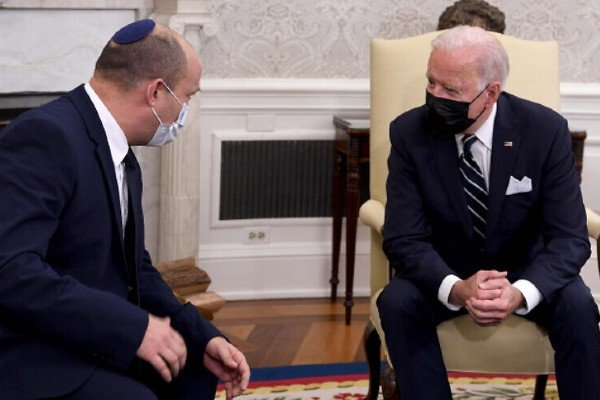Policy researcher and former IDF General Yoni Kuperwasser got the message when visiting Congress in early November.
Several members of Congress told an Israeli general earlier this month that the United States will not take serious action against Iran on the nuclear issue, and Israel will have to deal with the danger by itself, Channel 12 reported.
Brig. Gen. (res.) Yoni Kuperwasser, a former head of research in the IDF’s Intelligence Division, is now the project manager for monitoring regional developments and their consequences for the Jerusalem Center for Public and State Affairs (JCPA).
The non-profit institute engages in strategic, political and legal research to formulate position papers for leaders in Israel and elsewhere on issues that include global terrorism, the Iran nuclear program, and Israel’s rights under international law.
Kuperwasser wrote on the news site that two weeks ago, he received “a clear message from members of Congress” regarding what Israel might expect from its strongest ally if Iran keeps developing its weapons program.
“Do not rely on American backing, certainly not on direct American action or American aid,” he said they told him.
“You are alone and do what you think you need to do.”
Despite its oft-stated commitment to Israel that it will not allow the Islamic Republic to become a nuclear threshold state, the Biden administration is merely issuing verbal warnings and “refraining from any move that could lead to a harsh Iranian response,” Kuperwasser wrote, in apparent agreement with the downbeat assessment of the unnamed legislators.
The Americans are now focused solely on a return to the original nuclear deal that former president Donald Trump walked away from in 2018, with barely a mention anymore of changing it first to make it more “robust,” as the administration had first promised, he added.
This, even though the knowledge and ability that Iran has gained in producing close to weapons-grade enriched uranium and uranium metal makes a mockery of the sunset clauses in the 2015 agreement.
For years, Israeli governments have been saying that they would act alone if the danger from Iran became acute, although they would prefer that the world unite against the mullahs’ hegemonial ambitions in the Middle East, which includes the development of nuclear bombs.
On Tuesday again, Prime Minister referred to Israel’s policy after attending an IDF exercise in the north, where the troops trained for various war scenarios against Hezbollah, Iran’s chief proxy on the country’s border.
“We are dealing with Iran and its proxies, in Lebanon and Syria,” Bennett said. “No matter what happens between Iran and the world powers — and we are certainly concerned about the fact that there is insufficient severity in dealing with Iranian violations — Israel will protect itself with its own forces,” Bennett said.
In a September interview with Channel 12, Bennett was even sharper in his declaration on the subject.
“We presented to our friends in the U.S. a plan of action, as well as to countries in the region, because we’d be happy if, along with our independent actions, our partners will act,” he said. “Either way, the responsibility is here, and we will stop Iran from getting a nuclear weapon at any price.”
Iran has agreed to go back to the negotiating table with the United States at the end of November, after a five-month hiatus in the nuclear talks. Israel believes that that the mullahs are only buying time with this tactic, and that they have no real intention of signing on again to the nuclear deal.
(World Israel News).
